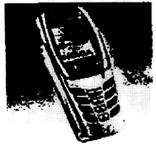
科目: 來源: 題型:閱讀理解
In 1901, H.G. Wells, an English writer, wrote a book describing a trip to the moon. When the explorers(探險者) landed on the moon, they discovered that the moon
was full of underground cities. They expressed their surprise to the “moon people” they met. In turn, the “moon people” expressed their surprise. “Why,”they asked, “are you traveling to outer space when you don't even use your inner space?”H.G. Wells could only imagine travel to the moon. In 1969, human beings really did land on the moon. People today know that there are no underground cities on the moon. However, the question that the “moon people” asked is still an interesting one. A growing number of scientists are seriously thinking about it.
Underground systems are already in place. Many cities have underground car parks. In some cities, such as Tokyo, Seoul and Montreal, there are large underground shopping areas. The “channel”, a tunnel(隧道) connecting England and France, is now complete.
But what about underground cities? Japan's Taisei Corporation is designing a network of underground systems, called “Alice Cities”.The designers imagine using surface space for public parks and using underground space for flats, offices, shopping, and so on. A solar dome(太陽能穹頂) would cover the whole city.
Supporters of underground development say that building down rather than building up is a good way to use the earth's space. The surface, they say, can be used for farms, parks, gardens, and wilderness. H.G. Wells' “moon people” would agree. Would you?
1.The explorers in H.G. Wells' story were surprised to find that the “moon people” ________.
A.knew so much about the earth
B.understood their language
C.lived in so many underground cities
D.were ahead of them in space technology
2.What does the underlined word “it” (paragraph 2) refer to?
A.Discovering the moon's inner space.
B.Using the earth's inner space.
C.Meeting the “moon people” again.
D.Travelling to outer space.
3.What sort of underground systems are already here with us?
A.Offices, shopping areas, power stations.
B.Tunnels, car parks, shopping areas.
C.Gardens, car parks, power stations.
D.Tunnels, gardens, offices.
4.What would be the best title for the text?
A.Alice Cities —Cities of the Future
B.Space Travel with H.G. Wells
C.Enjoy Living Underground
D.Building Down, Not Up
查看答案和解析>>
科目: 來源: 題型:
 A newspaper in Helsinki,Finland,recently published a cartoon of a baby with a mobile phone,telling his parents that his diaper(尿布) needed changing.But it's hardly a joke.Helsinki is home to Nokia,the mobile?phone maker.It's one of the most “mobile”cities in the world.About 92 percent of its households have at least one mobile phone.And the kids start young.
A newspaper in Helsinki,Finland,recently published a cartoon of a baby with a mobile phone,telling his parents that his diaper(尿布) needed changing.But it's hardly a joke.Helsinki is home to Nokia,the mobile?phone maker.It's one of the most “mobile”cities in the world.About 92 percent of its households have at least one mobile phone.And the kids start young.
“A relatively normal age to get a mobile phone is now 7,”says Jan Virkki,marketing manager for a mobile phone company.Among the second graders at the Kulosaari Elementary School,the most popular object of desire this year is not a Barbie or a Gameboy.It is a Nokia mobile phone with a picture of their own choice on the screen.
“One of the first things we discuss when school starts is the rules for mobile phones,”says Tiia Korppi,a teacher.Among the rules:You have to put it away out of sight.You cannot turn it on.You cannot send text messages to your friends,or play amusing tunes(令人發(fā)笑的曲調(diào))in class,or call your parents or call for a pizza during history.
1.The author uses the newspaper cartoon to show that ________ .
A.he is good at telling jokes
B.he cares much for children
C.mobile phones are toys for new?born babies
D.mobile phones are widely used in Finland
2.The passage is mainly about__________
A.different uses of mobile phones
B.a successful mobile?phone maker
C.effect of mobile phones on children
D.school rules for the use of mobile phones
查看答案和解析>>
科目: 來源: 題型:
---Where is my reference book? It was here a moment ago.---Someone ___ it by mistake.
A. could have taken B. must take C. might take D. must have taken
查看答案和解析>>
科目: 來源: 題型:
--How ___ your daughter ___ at university? ---She’s doing fine. Thank you.
A. is . getting along B. has, got along C.does, get along D. was, getting along
查看答案和解析>>
科目: 來源: 題型:
A warm thought suddenly came to me____ I might substitute the hero to buy some flowers for his mother’s 60th birthday.?
A.if B.when
C.that D.which?
查看答案和解析>>
科目: 來源: 題型:
— Dad,can I surf the Internet??
—Again?I wish that you _____going online _____your health. ?
A.know;will do harm to?
B.knew;are doing harm to?
C.know;have done harm to?
D.knew;were doing harm to?
查看答案和解析>>
科目: 來源: 題型:
_____the climate changes so much has caused many discussions among the scientists.?A.What B.Which C.When D.That?
查看答案和解析>>
科目: 來源: 題型:
The traditional approach___with complex problems in our studies is to break them
down into smaller,more easily managed problems.?
A.to deal B.having dealt? C.to dealing D.being dealt?
查看答案和解析>>
湖北省互聯(lián)網(wǎng)違法和不良信息舉報平臺 | 網(wǎng)上有害信息舉報專區(qū) | 電信詐騙舉報專區(qū) | 涉歷史虛無主義有害信息舉報專區(qū) | 涉企侵權(quán)舉報專區(qū)
違法和不良信息舉報電話:027-86699610 舉報郵箱:58377363@163.com